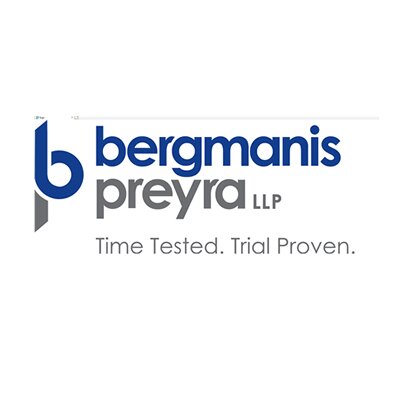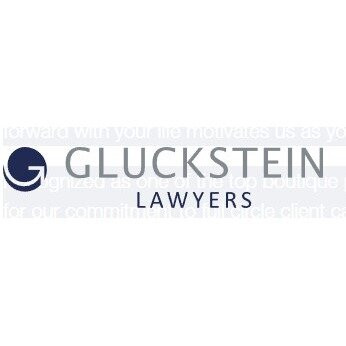Best Truck Accident Lawyers in Toronto
Share your needs with us, get contacted by law firms.
Free. Takes 2 min.
List of the best lawyers in Toronto, Canada
About Truck Accident Law in Toronto, Canada
Truck accident law in Toronto, Canada, involves legal regulations surrounding vehicular accidents involving large trucks on Toronto’s roads. Due to their size and the potential for severe damage, truck accidents are treated with stringent legal scrutiny. The accidents could range from minor collisions to catastrophic events causing significant injuries or fatalities. The rules governing these accidents are detailed within Canada's federal and provincial laws, which mandate compliance with safety standards and appropriate conduct after an accident occurs.
Why You May Need a Lawyer
Involving a lawyer in truck accident cases can be crucial due to the complexities involved. Common scenarios necessitating legal assistance include dealing with extensive property damage, severe personal injuries, disputes over fault finding, insurance claims rejections or complications, and living with long-term or permanent disabilities resulting from the accident. Additionally, lawyers can help reveal causes such as driver negligence, mechanical failures, or improper cargo loading, which may not be immediately apparent.
Local Laws Overview
Truck accidents in Toronto are governed by a mix of provincial regulations from Ontario and federal traffic laws. Key aspects include adherence to the Highway Traffic Act, which dictates safe driving practices and road behavior; regulations regarding commercial vehicle operations; and standards set by Transport Canada for vehicle safety. Additionally, the Statutory Accident Benefits Schedule (SABS) outlines the insurance coverage mandates for individuals involved in accidents, ensuring they receive necessary benefits.
Frequently Asked Questions
What should I do immediately after a truck accident in Toronto?
First, ensure everyone's safety. If safe, move vehicles out of traffic. Contact emergency services. Exchange information with the other driver(s) and gather witness accounts if possible. Document the scene with photos. Report the accident to your insurance company promptly.
Who is liable in a truck accident?
Liability may rest with the truck driver, the trucking company, a vehicle or parts manufacturer, or another third party. Determining fault often involves investigating driver logs, vehicle maintenance records, and cargo loading procedures.
What compensation is available after a truck accident?
Compensation can cover medical expenses, rehabilitation costs, lost wages, property damage, pain and suffering, and other related expenses. The exact compensation depends on the accident circumstances and insurance policies involved.
Can I sue the trucking company for my injuries?
Yes, if the truck driver was an employee and acting within the scope of their employment when the accident occurred, the trucking company might be vicariously liable.
What role does insurance play in a truck accident case?
Insurance companies are heavily involved, as they assess claims and pay benefits for medical costs, vehicle repairs, and other damages. Disputes are not uncommon, especially regarding liability and compensation amounts.
How long do I have to file a claim after a truck accident in Toronto?
In Ontario, you generally have two years from the date of the accident to file a personal injury claim. However, notifying your insurer immediately is crucial to securing accident benefits.
Do I need to go to court to resolve my truck accident case?
Not necessarily. Many claims are settled through negotiation or mediation. However, if a fair settlement isn't possible, going to court may be necessary.
What evidence is important in truck accident cases?
Important evidence includes photos of the scene, police reports, witness statements, medical records, driver logs, and truck inspection and maintenance records.
How does Ontario's no-fault insurance system affect my claim?
Regardless of fault, you can claim accident benefits from your insurer. However, to recover damages for pain and suffering, you need to prove the other party's liability.
Are there specialized lawyers for truck accidents?
Yes, some lawyers specialize in personal injury law and have expertise in handling truck accident cases, which often require specific legal knowledge due to their complexity.
Additional Resources
Consider reaching out to the following resources for more information and assistance:
- The Insurance Bureau of Canada for information on insurance claims.
- Ontario Ministry of Transportation for vehicle regulation details.
- Office of the Ombudsman Ontario for general legal guidance.
- Legal Aid Ontario for assistance if you require legal representation but face financial constraints.
Next Steps
If you need legal assistance following a truck accident, consider taking the following steps:
- Document every detail related to the accident, including medical treatments and insurance communications.
- Consult with a personal injury lawyer experienced in truck accident cases to discuss your situation and potential next steps.
- File an insurance claim and notify them of your intention to seek compensation.
- Consider obtaining a comprehensive legal evaluation to better understand the strengths and weaknesses of your case.
- Prepare for possible mediation or litigation, as advised by your legal counsel.
Lawzana helps you find the best lawyers and law firms in Toronto through a curated and pre-screened list of qualified legal professionals. Our platform offers rankings and detailed profiles of attorneys and law firms, allowing you to compare based on practice areas, including Truck Accident, experience, and client feedback.
Each profile includes a description of the firm's areas of practice, client reviews, team members and partners, year of establishment, spoken languages, office locations, contact information, social media presence, and any published articles or resources. Most firms on our platform speak English and are experienced in both local and international legal matters.
Get a quote from top-rated law firms in Toronto, Canada — quickly, securely, and without unnecessary hassle.
Disclaimer:
The information provided on this page is for general informational purposes only and does not constitute legal advice. While we strive to ensure the accuracy and relevance of the content, legal information may change over time, and interpretations of the law can vary. You should always consult with a qualified legal professional for advice specific to your situation.
We disclaim all liability for actions taken or not taken based on the content of this page. If you believe any information is incorrect or outdated, please contact us, and we will review and update it where appropriate.













